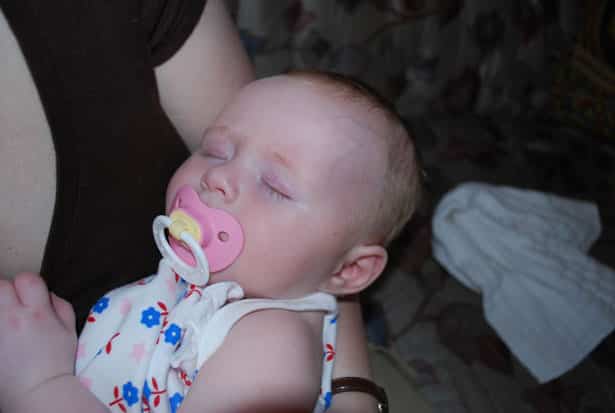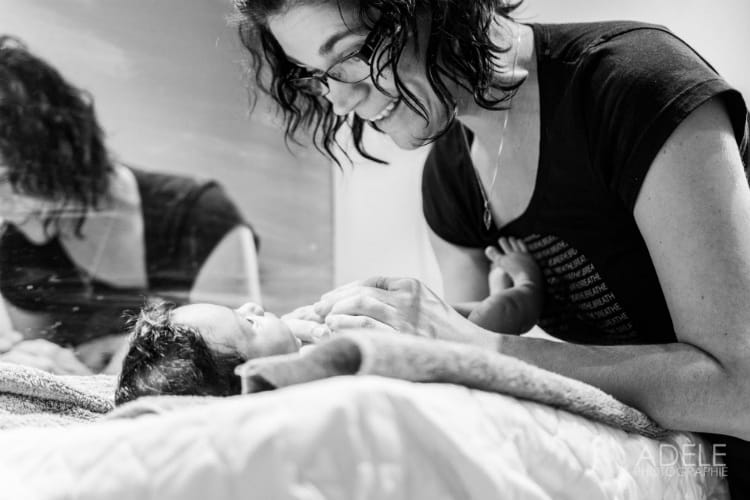To read the start of this entry, go to Demystifying Baby Sleep from Birth to One Year.
Updated article on March 15, 2021
Many parents are worried about separation anxiety and night terrors. Here is a bit of information on these two topics.
It’s normal for a baby around 9 or 10 months of age to have short-term separation anxiety. At this age, a baby’s notion of time and memory is limited. This is why they will react strongly when they notice that their parents aren’t close by, often their mother who spends most of the time with them. Also, when they go to sleep, when their mother or father leaves the room, they want your reassuring presence. This is a normal part of the baby’s development. Putting them to bed with a comforting object will make them feel secure.
Moving to a new home can cause the same reaction. Their environment has changed, and they want to be reassured that you’re still with them. Don’t expect otherwise! If you try to meet every demand, it will increase their dependency on your presence when going to sleep.
The refusal stage from 18 to 24 months is the same thing. They will react strongly to the fact that you don’t do what they want. Parents with a consistent and constant attitude and behaviour for the sleep routine will quickly handle the situation.
 Night terrors affect 6% of children under 18 months up to 6 years of age, and sometimes earlier (after one year). Boys are more affected. This phase isn’t dangerous for your child even if it seems horrible due to their reactions.
Night terrors affect 6% of children under 18 months up to 6 years of age, and sometimes earlier (after one year). Boys are more affected. This phase isn’t dangerous for your child even if it seems horrible due to their reactions.
Children can wake up at night screaming, eyes wide open with a terrified look, sweating and are often agitated.
These terrors usually arrive during the latency phase of the sleep cycle, which is paradoxical (dreams and nightmares cycle), and disappear with the maintenance of their routine. They gradually feel safer.
Fear of the dark and nightmares can also occur in children from 18 to 24 months of age, but rarely before. Once again, it’s part of a stage in the child’s neurological development.
To learn more about naps, read the next entry: Naps.




